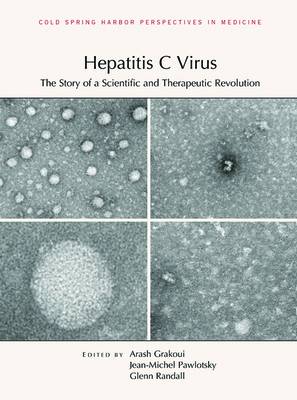
- Retrait gratuit dans votre magasin Club
- 7.000.000 titres dans notre catalogue
- Payer en toute sécurité
- Toujours un magasin près de chez vous
- Retrait gratuit dans votre magasin Club
- 7.000.000 titres dans notre catalogue
- Payer en toute sécurité
- Toujours un magasin près de chez vous
Hepatitis C Virus
The Story of a Scientific and Therapeutic Revolution
123,95 €
+ 247 points
Description
Hepatitis C is a liver disease caused by infection with the hepatitis C virus (HCV), a bloodborne pathogen. In some people, an immune response will clear the infection; however, in most, the infection becomes chronic and treatment with antiviral medication is necessary to prevent serious liver damage and cancer. The eradication of HCV will require improved access to diagnosis and treatment, an enhanced understanding of virus-host interactions, and the development of an effective vaccine. Written and edited by experts in the field, this collection from Cold Spring Harbor Perspectives in Medicine examines all aspects of the biology of HCV, the pathological consequences of infection, the current standard of hepatitis C treatment, and ongoing efforts to control the disease. Contributors discuss the structural and biochemical properties of HCV, the molecular details of its life cycle, and how it promotes liver disease by perturbing host cell signaling pathways. They likewise examine the innate and adaptive immune responses elicited by HCV and why those responses often fail to clear the infection. Direct-acting antiviral regimens to treat infected patients, the impacts of those treatments on hepatitis C epidemiology, and obstacles to HCV elimination (e.g., vaccine development) are also covered. This volume includes additional perspectives on the discovery of HCV, historical milestones in HCV research, and animal and cell culture models of HCV infection. It is an essential reference for virologists, immunologists, and all clinical and laboratory investigators interested in eliminating HCV as a public health threat.
Spécifications
Parties prenantes
- Editeur:
Contenu
- Nombre de pages :
- 308
- Langue:
- Anglais
- Collection :
Caractéristiques
- EAN:
- 9781621823193
- Date de parution :
- 31-07-20
- Format:
- Livre relié
- Format numérique:
- Genaaid
- Dimensions :
- 185 mm x 259 mm
- Poids :
- 957 g






